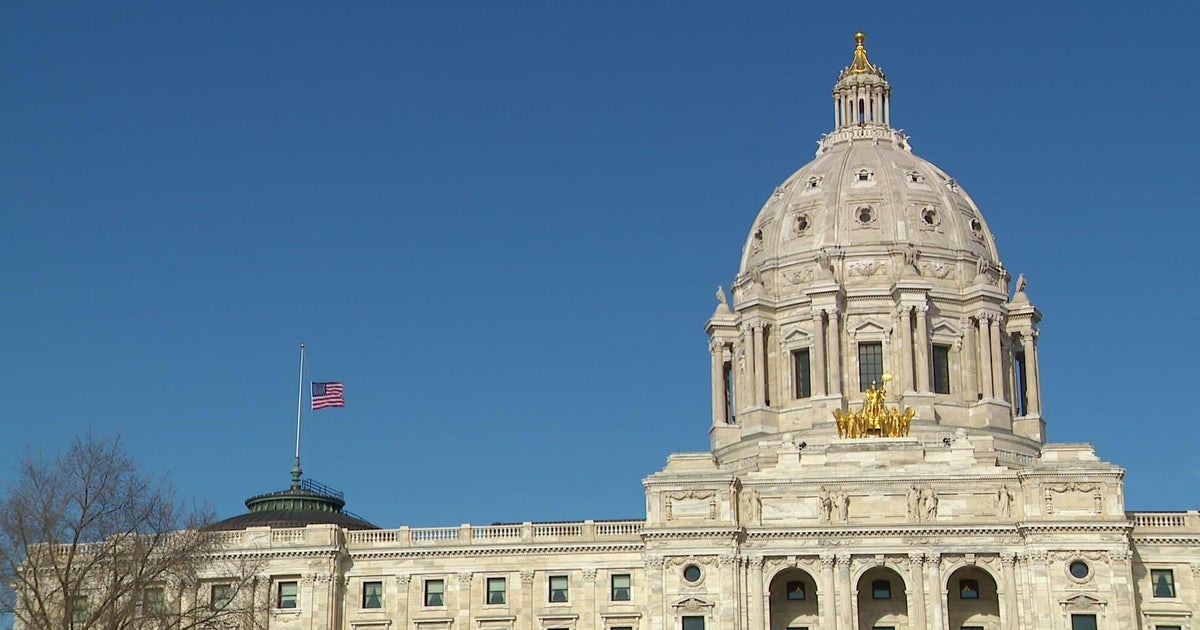What Biden is likely to address in his State of the Union speech
When President Biden delivers his State of the Union address on Feb. 7, he will do so to a different Congress, a different nation and a different world than he did in his last State of the Union address.
Inflation, although easing, is still eating away at the budgets of many American families. The war in Ukraine is approaching its one-year mark. And for the first time since he took office, President Biden faces a divided Congress, with Republicans controlling the lower chamber and Democrats controlling the upper chamber — a dynamic that's already setting up skirmishes on Capitol Hill.
State of the Union speeches are typically written over weeks and months, and the painstaking editing process can drag on until the previous days and even hours before delivery. The speech is typically kept secret, with the exception of excerpts that are sometimes released to reporters shortly ahead of time.
Here are the topics most likely to appear in Mr. Biden's State of the Union address this year:
The debt ceiling
Treasury Secretary Janet Yellen warned Thursday that the U.S. has reached its debt limit, meaning it's tapped out on how much it can borrow.
The federal government can move some funds around using "extraordinary measures" and likely manage until about June, she said. But if Congress doesn't act, it risks a potentially catastrophic default.
Many House Republicans don't want to increase the debt limit, arguing that the country is already spending too much as it is and needs to lower spending first. Democrats point to the economic and financial fallout that will come without increasing the debt ceiling.
Mr. Biden wants a clean increase to the debt limit — that is a vote on raising it without conditions — in order to keep the country's existing financial commitments, while House Speaker Kevin McCarthy wants negotiations involving spending cuts. White House officials are saying they won't negotiate.
Cameras are likely to be trained on McCarthy, who will be seated behind the president, if Mr. Biden does bring up the topic.
The economy — and inflation
The labor market continues to be strong, with 3.5% unemployment matching a 50-year low. The U.S. added a more-than-anticipated 223,000 jobs in December.
But it's impossible to talk about the economy without addressing inflation. Inflation is showing signs of easing, but American families are still paying much more for basic necessities — like eggs, butter, chicken and utilities — than they were two years ago or even a year ago.
In a CBS News poll earlier this month, 76% said lowering inflation should be a high priority for Congress, although those who voted for Republicans were more likely than those who voted for Democrats to list inflation as the most important priority.
Mr. Biden addressed inflation in his State of the Union address last year, and there's a good chance he points out that inflation is easing this year as he tries to make the case that the economy is moving in the right direction.
Support for Ukraine
Mr. Biden opened his last State of the Union address in March, days after Russia invaded Ukraine, with an indictment of Russian President Vladimir Putin.
"Putin has unleashed violence and chaos," the president said during his speech last year. "But while he may make gains on the battlefield — he will pay a continuing high price over the long run."
Mr. Biden will try to rally Congress and the American people around the cause of Ukraine again, because he'll almost certainly need to ask lawmakers for additional funding to support the Ukrainians' effort. Ukraine President Volodymyr Zelenskyy addressed Congress in person in December, as the U.S. was considering passing — and ultimately, did pass — additional aid.
Mr. Biden has said the U.S. will help Ukraine for as long as it takes, and Russia's war shows no end in sight.
Infrastructure
The bipartisan infrastructure legislation passed and signed in 2021 has been one of the most significant legislative accomplishments of the Biden presidency thus far. Many of those projects are taking off across the country, giving Mr. Biden something tangible to showcase to the American people. He's dubbed this the "infrastructure decade," a play on the running jokes about the "infrastructure day" that never came to fruition during the Trump administration.
Gun violence and gun control
In the wake of another spate of mass shootings, the president is likely to bring up gun violence and gun control in his address. Mr. Biden has repeatedly urged Congress to pass an assault weapons ban, something Congress was unable to do even when Democrats controlled both chambers. Still, the president is pushing Congress for more action.
Democratic Sen. Dianne Feinstein of California introduced an assault weapons ban this week.
"I am asking you all to send that to my desk as quickly as you you can," Mr. Biden told Democratic leaders during a White House meeting Tuesday.
What he probably won't mention:
The documents saga
The president will surely avoid mentioning the ongoing saga over documents with classification markings found at the Penn Biden Center in Washington, D.C., and at his Wilmington, Del., home. As CBS News has reported, the situation has frustrated the president as the White House continues to insist they are cooperating fully with the Justice Department's investigation.
2024
Mr. Biden is likely to announce his bid for reelection "not long after" he delivers the State of the Union, according to a source with knowledge of the ongoing planning. The president wouldn't announce during the speech, which isn't deemed an appropriate venue for a political announcement, but senior aides see it as a way for the president to lay out both his short-term and long-term goals.



